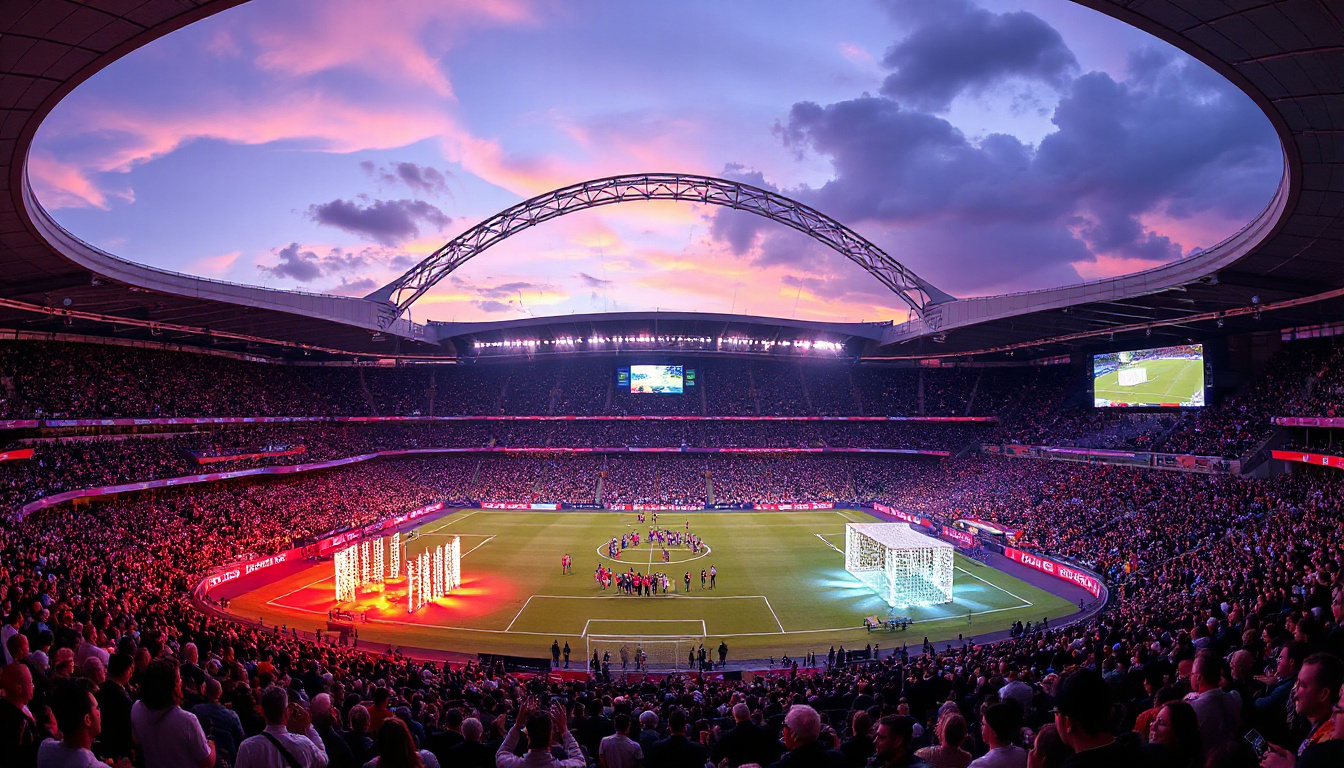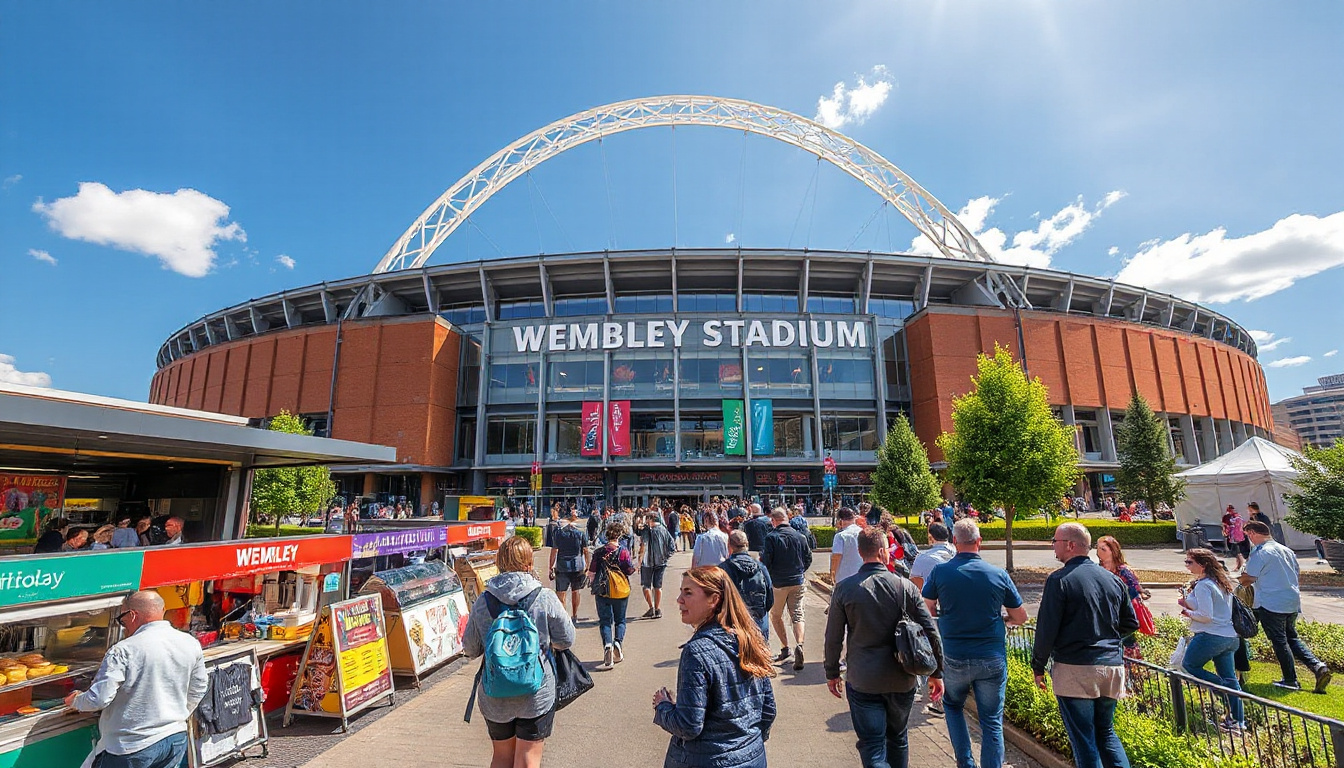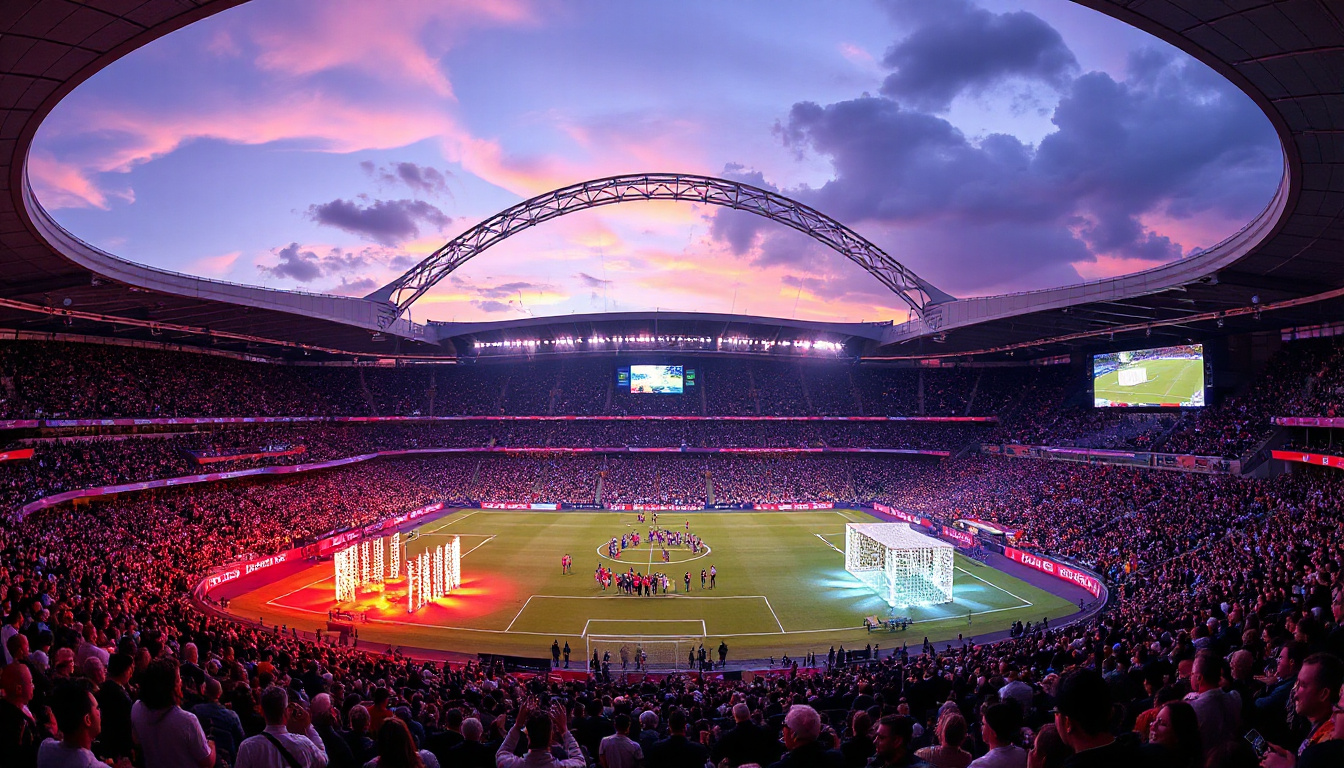Wembley Stadium, located in the heart of London, is an architectural marvel and a significant landmark in British culture, renowned for its multifaceted role as a venue for both football matches and concerts. Since its reopening in 2007, the stadium not only embodies the history and legacy of the original Wembley built in 1923 but has also established itself as a premier destination for world-class events. This article explores the rich history and significance of Wembley Stadium, highlights the major events hosted there, and details the visitor experience and facilities, making it a must-visit venue for both sports enthusiasts and music lovers alike.

Key Takeaways
- Wembley Stadium has a rich history dating back to its opening in
1923. - It serves as an iconic venue for both football matches and major concerts worldwide.
- The stadium has hosted legendary events, including the FA Cup Final and performances by global music stars.
- Visitors can enjoy a range of facilities including tours, dining options, and merchandise shops.
- Wembley Stadium is a vital part of London’s cultural and sporting identity, attracting millions annually.
History and Significance of Wembley Stadium
Wembley Stadium, located in London, has a rich history that dates back to its original construction in 1923, designed to host the British Empire Exhibition. The iconic structure, often referred to as the ‘home of English football,’ has undergone significant transformations, including a complete rebuild that was completed in
2007. The new Wembley Stadium, renowned for its striking arch and state-of-the-art facilities, serves not only as a venue for major football matches, such as the FA Cup Final and international fixtures, but also hosts a wide array of concerts featuring some of the world’s biggest artists. This versatility has cemented Wembley’s status as a key cultural and sporting landmark, drawing millions of visitors each year, highlighting its significance within both the sporting and entertainment realms. In recent years, Wembley has attracted attention for its capacity to seat 90,000 spectators, making it the largest stadium in the UK and an essential destination for any major event. It continues to play an important role in British sport and culture, reflecting the vibrant history and evolution of London as a global city.
Major Events: Football Matches and Concerts
London’s Wembley Stadium is an iconic venue that has been host to numerous significant events, ranging from exhilarating football matches to electrifying concerts. Renowned as the home of English football, Wembley has witnessed historic moments, such as the 1966 FIFA World Cup final where England triumphed over West Germany. The stadium also regularly hosts important fixtures, including the FA Cup Final and international matches featuring the England national team. Additionally, Wembley is equally celebrated for its capacity to accommodate world-class concerts, with artists like Beyoncé, Ed Sheeran, and The Rolling Stones gracing its stage, drawing crowds from all over the globe. The stadium not only thrives on its historical significance but also embraces modern technology and comfort, making it a premier destination for sports and entertainment. With a seating capacity of 90,000, Wembley continues to be the centrepiece for major sporting events and concerts in the UK, attracting millions of visitors each year. For more information on upcoming events at Wembley Stadium, you can check reliable sources such as [The FA](https://www.thefa.com/) and [Wembley Stadium’s official website](https://www.wembleystadium.com/).
### Sources
• The FA. (n.d.). Events at Wembley Stadium. Retrieved from [The FA](https://www.thefa.com/)
• Wembley Stadium. (n.d.). Upcoming Events. Retrieved from [Wembley Stadium](https://www.wembleystadium.com/)
‘The thrill of victory and the agony of defeat are both part of the beautiful game we love, and Wembley Stadium has been the stage for countless unforgettable moments in this symphony of sport and music.’

Visitor Experience and Facilities at Wembley
Wembley Stadium, located in London, stands as a premier venue not only for football matches but also for concerts and various entertainment events. Opened in 2007, the stadium boasts a capacity of 90,000, making it the largest in the UK and the second-largest in Europe. Visitors can enjoy state-of-the-art facilities, including comfortable seating, excellent acoustics for concerts, and a variety of dining options to cater to diverse tastes. Additionally, the iconic arch and the picturesque surroundings add to the overall experience, providing stunning views and a vibrant atmosphere. From the accessibility of transport links to the thoughtfully designed visitor services, Wembley Stadium ensures that all guests have a memorable experience when attending events. The venue has also made significant strides in sustainability, aiming to recycle waste and reduce carbon footprints. For the latest updates on events and facilities at Wembley Stadium, check their official website [Wembley Stadium](https://www.wembleystadium.com/news) and follow news from reputable sources such as [The Guardian](https://www.theguardian.com/football/wembley-stadium) and [BBC Sport](https://www.bbc.co.uk/sport/football/wembley) for comprehensive coverage.



